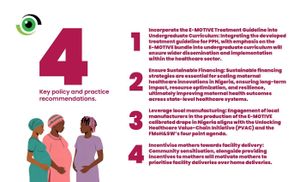After the dust settled from November's highly anticipated U.S. presidential election, the results sent shockwaves through the political spectrum. Former President Donald Trump emerged victorious, securing his second term against Vice President Kamala Harris, effectively setting the stage for significant political shifts across the nation. This outcome not only reverberated within the Democratic Party but also posed immediate questions about the future of current policies implemented during Joe Biden’s administration.
President Biden, who made his first public comments after Trump’s stunning win, expressed, "I know it’s a difficult time. You’re hurting. I hear you and I see you. But don't forget, don't forget all we accomplished. It’s been an historic presidency." He contextualized his administration’s achievements, remapping future expectations, and promised to facilitate a peaceful transfer of power. These remarks aimed to soothe the anxiety simmering among his supporters.
Despite Biden's attempts at reassurance, the ramifications of Trump's re-election sparked immediate and numerous critiques surrounding the future political climate. The Democrats, still reeling from the defeat, were quick to engage in introspection, attempting to pinpoint where strategies went awry. Many party members and insiders recognized Biden’s presence as potentially detrimental, fearing his age and visible struggles during campaign events may have undercut the party's credibility.
Political tensions heightened as commentators and analysts sought to attach meaning to Trump’s comeback narrative. Eric Lutz from Vanity Fair attributed his success to multiple factors, emphasizing how voters embraced Trump's unapologetic persona, and the Democratic Party’s failure to mobilize effectively against it. He highlighted how perceptions of Biden’s capabilities to lead were increasingly shadowed by doubt, simply exacerbated by Trump’s relentless pursuit of power.
Looking back, many believed Biden’s earlier promise to pave the way for younger leadership might have been misinterpreted or ignored, tying his administration’s legacy to the very issues he sought to dismantle. Now, faced with the prospect of Trump reinstated, Biden and Harris must grapple with the reality of their policies, especially those surrounding higher education.
Trump's return to the White House signifies potential dismantling of Biden’s progressive educational reforms. The former president has pledged to eradicate regulations surrounding federal guidance for education, claiming universities are run by “Marxist maniacs.” If carried out, such actions would reverse Biden’s efforts to protect students' rights and create financial pathways for education through student loan forgiveness.
A senior vice president from the American Council on Education articulated feelings of uncertainty among college leaders. Not only would Trump’s policies likely dismantle Biden’s primary educational advances, but they could also reflect poorly nationally, exacerbated by the growing divide between degree holders and non-degree holders.
During his presidency, Biden crafted substantial policies to support student loan forgiveness and sought to hold institutions accountable for student welfare, particularly focusing on issues such as LGBTQ+ rights. His administration's recent goals included healing divisions strengthened under previous administrations; nonetheless, Trump’s pronounced intentions to reshape educational oversight could unravel those frameworks.
Experts expect Trump's education agenda, if implemented, will feature controversial reversals akin to what he previously executed. Rights of vulnerable populations, particularly those surrounding LGBTQ matters, might significantly come under scrutiny, as it aligns with Trump’s established focus during prior terms.
The future of federal education oversight remains precarious. Over the past decades, the Education Department has played significant roles, from preventing discrimination to managing student loan accounts totaling nearly $1.7 trillion. Discussions continue among lawmakers about whether to retain the agency, evidencing how even within Republican ranks, opinions vary on the Department’s utility.
At the core of this uncertainty are the ramifications following the recent U.S. Supreme Court decisions impacting federal agency authority, which could severely limit the possibilities for future educational regulation. With conservative justices appointed during Trump’s prior administration continuing to shape policy, observers wonder how his potential second term might yield significant backlash against the education system at large.
Backed by supporters who unconditionally agree with his sentiments, Trump has strategically targeted educational accreditation throughout his political career—a move poised to impact who leads and what ideologies prevail within the classroom. His recent proposal to “fire the radical left accreditors” reinforces fears surrounding curriculum quality and instructor accountability.
Recognizing the aggravated partisan divide, experts observe how Biden’s presidency may have offered only temporary reprieve from extremist politics. The perception remains ripe within political commentary circles —suggesting, as Trump captures the national spotlight again, the Democratic Party faces building sorrow as core freedoms experience challenges.
From reevaluated educational approaches to changes reversing years of social progress, analysts believe the stakes are high for reform; whether the Democrats can recover, define new leadership, and pivot their focus for the future remains open for debate. With just days left before the conclusion of Biden’s term, the notion of whether any legacy endured has permeated both sides of the aisle, bringing tensions close to the surface.
For many Americans, the outcome of this electoral shift paints concerning pictures: Will fundamental rights maintained through Biden’s government survive under Trump's reign? And how might the paths forged through unprecedented bipartisan challenges emerge under revived, contentious governance?
Critical reflection now emerges as Harris prepares to lead the party and define its strategies moving forward. The call to action becomes clearer: must the Democratic Party cultivate fresh approaches to resonate with broader bases? Is there potential for rejuvenation within its ranks, offering voices of protest against Trump's anticipated overhauls? These questions echo throughout political discourse, forging tangible anticipation for what lies beyond this moment of transition.
One thing remains evident—after November’s electoral upheaval, both parties must reevaluate their constituents’ needs as the nation navigates through another potentially tumultuous chapter. And with Biden’s public address echoing his administration's accomplishments, whether they will withstand the test of time remains intricately tied to the methods through which the party proceeds.



